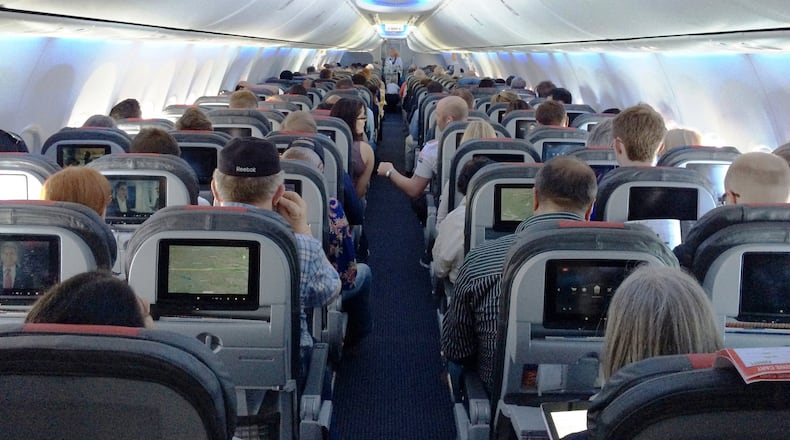Just in time for holiday travel, one government official has delivered some frank words on an issue gaining more attention in the aviation world: drunk airline passengers.
For some passengers, "their holiday begins in the airport bar, whether they arrive at the airport at 7 in the evening or 7 in the morning," said UK aviation minister Robert Goodwill at a British airport conference last month, according to a script of his comments.
But there is "growing concern," he said, about passengers who become disruptive on flights -- particularly after drinking alcohol.
By its nature, drunkenness on an airplane can quickly turn a jovial time into an international incident.
The International Civil Aviation Organization last year adopted a protocol on disruptive passengers, followed by the International Air Transport Association (IATA) adopting a resolution calling on governments and industry to manage the "problem of unruly air passenger behavior."
IATA notes that loopholes in existing laws mean "there are many cases where those who commit serious offenses are not punished."
"Everybody on board is entitled to enjoy a journey free from abusive or other unacceptable behavior," said IATA director general Tony Tyler at the time.
More than 38,230 cases of unruly passengers were reported worldwide from 2007 to 2014, and it's one of the top 3 safety issues for cabin crews, according to IATA.
Imbibing a little too much could be a symptom of a variety of factors. Flight delays or cancellations might drive a stranded passenger to spend a few hours at the airport bar. Those who are nervous about flying might self-medicate to calm their nerves.
But it becomes a particular issue in the "unique environment" of an airplane, which Goodwill described as a "confined space, filled with families and other travelers, and while in the air out of reach of traditional law enforcement."
Credit: Kelly Yamanouchi
Credit: Kelly Yamanouchi
"Clearly, no one party -- airlines, airports or government -- can solve this problem alone," Goodwill added.
He said at Edinburgh Airport, there are warnings about the risks of drunkenness displayed on airport bars and tables, and airlines could perhaps identify "the most trouble-prone flights" or "passengers with a history of poor behavior."
In the United States, "repercussions for passengers who engage in unruly behavior can be substantial," according to the FAA. That can include a fine of up to $25,000 per violation or prosecution on criminal charges. It's against federal law to assault, threaten, intimidate or interfere with crew members in their duties on a flight.
Federal air marshals are also able to intervene in incidents involving unruly passengers.
One of the more noteworthy recent incidents in the U.S. came in September when a passenger was arrested after police say he urinated on other passengers on an Anchorage-to-Portland flight.
The number of unruly passenger incidents varies by year, with 144 incidents reported nationally last year, according to the FAA.
Atlanta based Delta Air Lines said it has for decades "reserved the right to refuse service to unruly passengers and will continue to do so."
Delta's domestic and international contracts of carriage both note a variety of reasons Delta may refuse to transport a passenger, including when the passenger "appears to be intoxicated or under the influence of drugs." (Other reasons include being barefoot, having a contagious disease or having a "malodorous condition.")
According to Delta, unruly passengers are "at best, a nuisance to our customers and employees and at worst, a safety and security hazard."
Delta's training for flight attendants includes "tactics for dealing with unruly passengers up to and including restraints," according to spokesman Morgan Durrant. In rare instances, the flight crew may decide to divert the plane so the unruly passenger can be removed.
"Delta always facilitates responsible consumer consumption of adult beverages while on board and encourages customers to do the same on the ground," Durrant added.
About the Author
Keep Reading
The Latest
Featured





